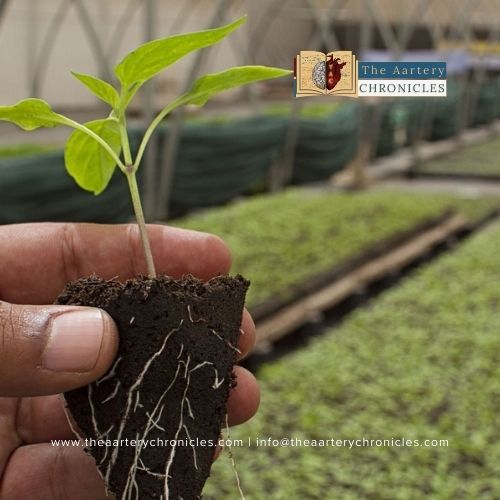

Cultivating Self-Compassion: Nurturing a kind relationship with yourself
Getting the Lowdown on Self-Compassion:
Self-compassion, as the name implies, means being compassionate to yourself, i.e. treating yourself with kindness, without judging your actions. It’s all about keeping your cool when life throws a curveball your way. We’ve all got those good days and the not-so-fun ones. Instead of getting stuck in the rut of the bad days, why not give yourself a little pep talk? Remind yourself to take a breather because, hey, tomorrow is a whole new day. After all, we’re just humans navigating this crazy rollercoaster called life! Self-compassion aims at making us feel better even in adverse times when we would otherwise be wallowing in self-pity.
Understanding self-compassion
Self-compassion is a positive attitude that cheers us emotionally when we fail or fall and feel that the world is coming crashing down on us. It is like being your own cheerleader. Something similar to cheering on your best friend, who is having a hard time. The only difference is that it is you that you need to cheer.
There are times when we are incapable of handling a particular situation. We feel frustrated and indulge in judging our actions and ruminating on them, wishing they could have been handled properly. Thereby beginning the train of “What if” thoughts, which tend to grow longer and longer, thereby making us feel terrible. Our self-worth and self-confidence take an about-turn, and we keep moving around in circles, criticizing ourselves, as a punishment. It is at this point in time, that we need to be kind to ourselves and not judge our actions, but to accept that we all have positives and negatives in us. The trick is to accept us as we are, with our flaws. It’s like a marriage, where you take your partner, flaws and all, “for better or for worse, in sickness and in health.” Bingo!
“Self-compassion is a practice of goodwill, not good feeling… With self-compassion we mindfully accept that the moment is painful, and embrace ourselves with kindness and care in response, remembering that imperfection is part of the shared human experience”.
[Neff, 2019]
The American psychologist Kristin Neff defines self-compassion as comprising three elements
- Self-kindness: “being warm towards oneself when encountering paid and personal shortcomings, rather than ignoring them and hurting oneself with self-criticism”,
- Common humanity: “recognizing that suffering and personal failure is part of the shared human experience rather than isolating”
- Mindfulness: ‘taking a balanced approach to one’s negative emotions so that feelings are neither suppressed nor exaggerated.”
Impact of self-compassion: CAUSES, BENEFITS AND ATTRIBUTES
Sorting Struggles and Life challenges with self-compassion:
Practicing self-compassion acts as a guiding light amid life’s chaos, for souls burdened with challenges and fears that feel overwhelming.

Being self-compassionate invokes a sense of understanding in us, acting as a soothing balm for the bumps and bruises life throws our way:
- Failing or feeling inconsequent or suffering: When the weight of failure or the sting of feeling inconsequential or the ache of suffering becomes heavy, self-compassion steps in to offer understanding.
- Unable to face fears: In times when our fears loom large, causing a paralyzing effect, self-compassion becomes the gentle guide, encouraging us to face them with kindness.
- In denial: When denial clouds our perception, preventing us from seeing things as they are, self-compassion gently nudges us toward acceptance and understanding.
- Self-confidence takes a beating: In moments of self-doubt or when our self-confidence takes a hit, self-compassion acts as a reassuring voice, reminding us of our inherent worth.
- Chiding ourselves: During instances of self-blame or when the inner critic becomes too harsh, self-compassion intervenes, urging us to replace criticism with understanding.
- Feeling worthless: When feelings of worthlessness threaten to overshadow our self-esteem, self-compassion becomes the mirror reflecting our inherent value and uniqueness.
- Being too harsh on ourselves: In times of excessive self-criticism or when we become overly harsh on ourselves, self-compassion steps in, encouraging a more forgiving and gentle perspective.
- Prioritizing pain/suffering: When we find ourselves prioritizing our pain or suffering, dwelling in its grip, self-compassion encourages us to acknowledge the pain while gently guiding us toward healing.
- Self-criticism: During bouts of self-criticism where our own thoughts become the harshest, self-compassion whispers the importance of treating ourselves with the same kindness we would offer a dear friend.
- Self-punishment: In instances where self-punishment seems like the only solution, self-compassion intervenes, promoting self-forgiveness and understanding.
- Indulging in negative thoughts: When negative thoughts threaten to spiral out of control, self-compassion helps break the cycle by fostering a more positive and understanding mindset.
- Feeling incompetent and unable to handle life: During moments of feeling overwhelmed or incompetent, self-compassion becomes the anchor, offering support and understanding as we navigate life’s challenges.
- Feeling “why me?”: In times when we question the fairness of our circumstances, self-compassion encourages a shift from self-pity to self-acceptance, acknowledging that challenges are part of the shared human experience.
In these instances and more, self-compassion is the antidote—an invitation to release judgment, accept ourselves as we are, and gracefully move forward on our journey through life.
“You’ve been criticizing yourself for years and it hasn’t worked. Try approving of yourself and see that happens”
Louise L. Hay
The Diversity of Self-Compassion – Benefits and Attributes
Self-compassion has benefits that are very useful for our mental and physical wellness and in addition, they teach us how to interact/react with others. Here are the ways how we can cultivate the attributes of self-compassion:
- Self-worth: We learn to accept ourselves with all our flaws, without judging our actions and without worrying about what others will think of us. This adds to our self-worth and self-confidence.
- Kindness: Treating ourselves with kindness becomes a habit, inevitably spilling over into how we treat others.
- Mindfulness: We look at our actions mindfully enabling us to adequately handle any situation. We concentrate on the issue at hand, We reflect positively, regardless of outcomes, enhancing our coping skills.
- Non-judgmental: The moment we cease judging our actions, a ripple effect occurs—we become less judgmental of others. Our outlook transforms positively.
- Capability: As we readily admit to our mistakes, we become adept at learning from them, thereby, ensuring that they are not repeated. This makes us take on new challenges head-on and meet them successfully.
- Productivity: As we are aware of our flaws, we can avoid them so as to increase our productivity. This enhances our self-confidence and gives it a boost.
- Patience: We tend to be patient with accepting ourselves, thereby increasing our patience levels. This enables us to be patient with others too.
- Forgiving: As we tend to forgive ourselves, we can easily forgive others too. It’s a powerful act of liberation.
- Loving: As we love and care for ourselves, we learn to love and care for others too.
- Inter-personal relationships: As we evolve, so also our manner of interacting with others. This aids in improving our interpersonal relationships.
- Positivity: Self-compassion brings about positivity in our lives. Our way of thinking changes for the better. We do away with negative self-talk and replace it with positivity.
- Lowers depression: Our stress, anxiety and depression levels are greatly reduced as we overcome our fears. The butterflies in the stomach or the panic/anxiety attacks are greatly reduced as we become more tolerant.
- Motivation: It becomes easier for us to achieve our goals as we know full well where we stand. Our acceptance and positivity motivate us to improve.
- Facing new challenges: Acknowledging weaknesses empowers us to face new challenges with resilience and determination.
- Broader perspective: Our perspective is broadened as we can focus better and find alternate solutions.
- Gratitude: Express gratitude and maintain a gratitude journal. Be thankful for the small day-to-day pleasures and stop focusing on the negatives.
- Peace: We are at peace with ourselves as we become more mindful.
- Concentration: Our concentration span increases with our awareness. Our mind is free from tension/stress thereby making us concentrate better.
- Encouragement: Encourage yourself in times of trouble and see the difference!
- Overcome fears: We learn to overcome our fears thereby building our self-confidence.
Self-compassion is the compass that guides us through life’s tumultuous seas. As we embrace its virtues, we not only find solace within ourselves but also radiate positivity, understanding, and resilience to the world around us.

Physical benefits of self-compassion
Self-compassion isn’t just about mental well-being; it has tangible physical benefits.
- When we embrace this mindset, our heart rate and pulse remain steady, blood pressure and palpitations stay in check, and we find relief from stress-related aches and pains. The unsettling sensations of nausea, butterflies in the stomach, and stomach upsets become a rarity. There’s a notable absence of unhealthy habits like binge eating or starving, ensuring that our overall physical health is maintained.
- Incorporating a routine of proper exercise, a healthy diet, adequate fluid intake, prayers, and sound sleep lays the foundation for well-being. When complemented with a touch of meditation and journaling, infused with the essence of self-compassion, the cumulative effect is transformative. Not only do these practices contribute to an increased life span, but they also usher in personal growth
It is all about giving yourself a chance. It is alright to feel angry, frustrated, worthless, etc. etc., but do not dwell on it for very long. Pat yourself on the back of the driving seat of life, and say “It is okay, things will be better next time”. However, this does not give you the license to repeat the mistakes over and over again just to pat your back.
On the contrary, you need to recognize your flaws and move on in a new direction, making maximum efforts to avoid similar problems in future. Learn to live with it and learn from it. Live your life for yourself and on your terms disregarding others’ opinions of you. You are all that matters! After all, it is your face that you will see in the mirror every day till you die and it is you whom you are answerable to. So be kinder to yourself. It may seem difficult but it is not entirely impossible. You can do it!
As Ralph Waldo Emerson says: “To be yourself in a world that is constantly trying to make you something else is the greatest accomplishment”.

Ms. Rupal Sonpal
View Author's Page
- Medicine
- Nutrition And Diet
Lorem ipsum dolor sit amet, consectetur adipiscing elit. Ut elit tellus, luctus nec ullamcorper mattis, pulvinar dapibus leo.













Thanks to the high-quality content and the administrator’s active involvement, the site’s reputation will undoubtedly improve soon.